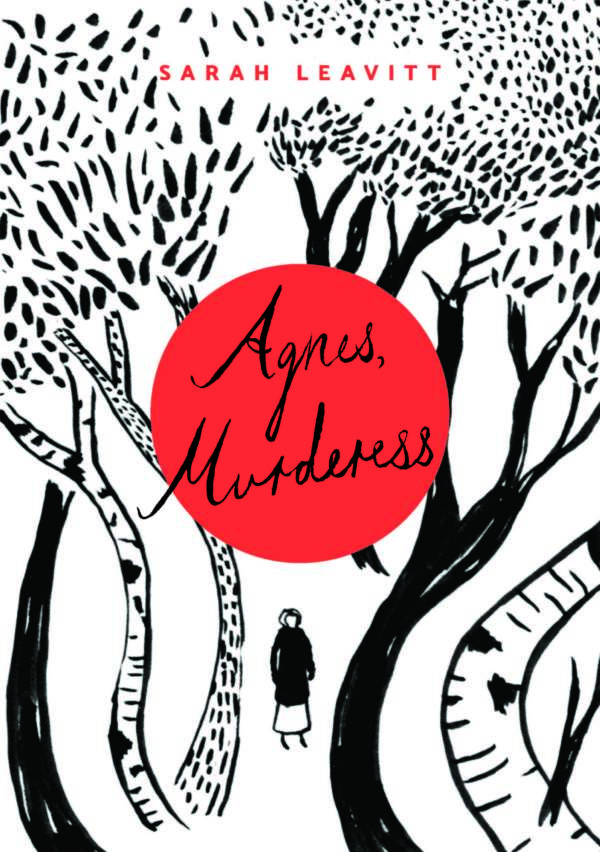Agnes, Murderess
By Sarah Leavitt
Freehand Books
288 Pages, $30.00
Deep in the woods of Northern British Columbia, Agnes McVee makes men disappear.
But Sarah Leavitt starts her reimagining of the hair-raising South Cariboo legend far across a continent and an ocean. Agnes, Murderess opens to spare black-and-white drawings of an island on the coast of Scotland in the early 19th century. In this remote place, we follow a young Agnes growing up under the thumb of Gormul, her cruel and controlling grandmother. In contrast to the expansive forests and oceans that surround her for most of the story, Agnes feels cornered, hemmed in, and followed. She tries desperately to flee harrowing memories, poverty, and her own desires, driving her further and further from the island of her birth. Agnes’s flight takes her all the way to the distant wilderness of British Columbia—and, along the way, into violence.
Agnes’s monologue is accompanied by grainy strokes that evoke quick impressions. The abundance of negative space has an almost meditative effect, emphasizing Agnes’s voice and heightening immersion. The bare style lends an emotional dampness that only becomes more disturbing as the plot progresses.
Carefully developed details shine throughout. Forests, a point of fixation for Agnes, are far by far the most richly illustrated scenes, with a depth and level of detail that contrasts simpler illustrations of structures, cities, and treeless landscapes. Agnes’s face is also always given special attention: “Give it to me. It’s mine. Everything in this house is mine,” she says to a resident and employee of her South Cariboo inn after having crossed an ocean to flee the spirit of her possessive grandmother. In the illustration, a deep wrinkle creases her brow, reminiscent of Gormul’s.
Leavitt’s telling of Agnes’s story is nuanced, but she never seeks to absolve the murderess. She depicts feminine monstrosity as it often exists in reality: folded together with tragedy, power, and deep pain. The story insists on facing both the horrors that plague Agnes and the violence she inflicts upon others, at first for her safety and later for her greed. The result is a powerful, if disturbing, critique of both the ways that women are abused and stripped of agency, and of the damage they can cause when they unleash pain onto others. Agnes, Murderess shows us how Agnes’s familial trauma and restrictive circumstances continually contrive to stoke the darkest fires in her heart. In this nuanced and unsettling retelling, Sarah Leavitt breathes icy life into a character as heartbreaking and cathartic as she is spine-chilling.
—Nara Monteiro














